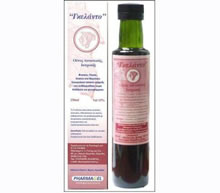
Λεξικό .. Socioeconomic aspects allergic diseases
Socioeconomic aspects allergic diseases, ΚοινωνικοοικονομικÎÏ‚ απόψεις αλλεÏγικών νόσων. Asthma and allergic diseases can place considerable restrictions on the physical and social aspects of the patient's lives. Most allergic diseases cannot be cured thus treatment should be directed towards symptom reduction and improvement in the Quality-of-Life (QOL)[1]. Quality of life, when referring to an individual's health, is called health-related quality of life (HRQL). HRQL focuses on patients' perceptions of their disease and measures impairments that have significant impact on the patient.
Similar symptoms may vary in their effect on different individuals; the goal of therapy should be to reduce impairments that patients consider important[2]. Increasing health costs are forcing many countries to face difficult choices in allocating finite resources to health care. The socioeconomic aspects of allergic diseases and asthma need to be envisaged for the health statues of these patients and management of disease. Whereas it is easier to incorporate such data in diseases with a high fatality rate such as cancer, there is a need for specific meaured of QOL for allergic diseases and asthma[1].
Health statues of allergic patients: QOL parameters should be examined in allergic and asthmatic patients to determine the socioeconomic impact of these chronic diseases. The Sickness Impact Profile or the Nottingham Health Profile were developed for chronic diseases and may not totally be applicable to asthmatics. The Asthma Symptom Checklist is not a QOL scale[1]. The Guyatt scale measures QOL in patients with chronic airflow limitation but has some disadvantages for asthma sufferers. The SF-36 Health Status Questionnaire may be the most appropriate measure of QOL in asthmatics and is currently being tested. In a recent study, Quick and Jones found that asthmatics have a poor perception of QOL parameters but this study did not include a control group nor was it carried out on a random sample of asthmatics.
Efficiency of anti-allergic treatments: The efficacy of anti-allergic treatments is studied by DBPC trials evaluating objective and subjective parameters. The safety of the treatments is assessed both during the clinical trials and by doctors' reports to Committees on Safety of Medicines. However, little is known about their cost-effectiveness incorporating QOL measures. Recently a score for assessing QOL in adult asthma patients was developed specifically for clinical trials (Hyland, Finnis and Irvine) and although it should be improved, it was found to be sensitive to QOL changes in clinical trials.
Efficiency of inflammatory markers in managing allergic disease. The example of asthma: Allergic diseases are characterized by a substantial inflammation thought to play a major role in the development of symptoms, the response to therapy and the short-and long-term course of the disease. Eosinophils are key cells and peripheral blood eosinophil markers are under study to assess their efficacy assessing asthmatic inflammation at baseline and follow-up during treatment. However, cost-effectiveness studies are lacking[1].
HRQL can be measured with generic or specific questionnaires. Specific questionnaires may be more sensitive and are much more likely to detect clinically important changes in patients' impairments. Specific questionnaires used to assess HRQL in rhinitis are the Rhinoconjunctivitis Quality of Life Questionnaire, the Adolescent Rhinoconjunctivitis Quality of Life Questionnaire, and the Pediatric Rhinoconjunctivitis Quality of Life Questionnaire. HRQL issues in adult rhinitis patients include fatigue, decrease in energy, general health perception, and social function; impairment of HQRL generally increases with increasing degree of symptoms and severity of disease. In children, HRQL issues include learning impairment, inability to integrate with peers, anxiety, and family dysfunction[2].
References
1. Bousquet, J.: Socioeconomic aspects of allergic diseases. In: Epidemiology of Allergic Diseases. In the Annual Meeting of EAACI, Zurich, Switzerland, May 25-29, 1991.
2. Meltzer EO.Quality of life in adults and children with allergic rhinitis. Allergy Clin Immunol. 2001 Jul;108(1 Suppl):S45-53.
Γκέλης Ν.Δ. - Λεξικό Αλλεργίας - Εκδόσεις ΒΕΛΛΕΡOΦΟΝΤΗΣ - Κόρινθος 2013
Gelis Ν.D. - Dictionary of Allergies - VELLEROFONTIS Publications - Corinth 2013




